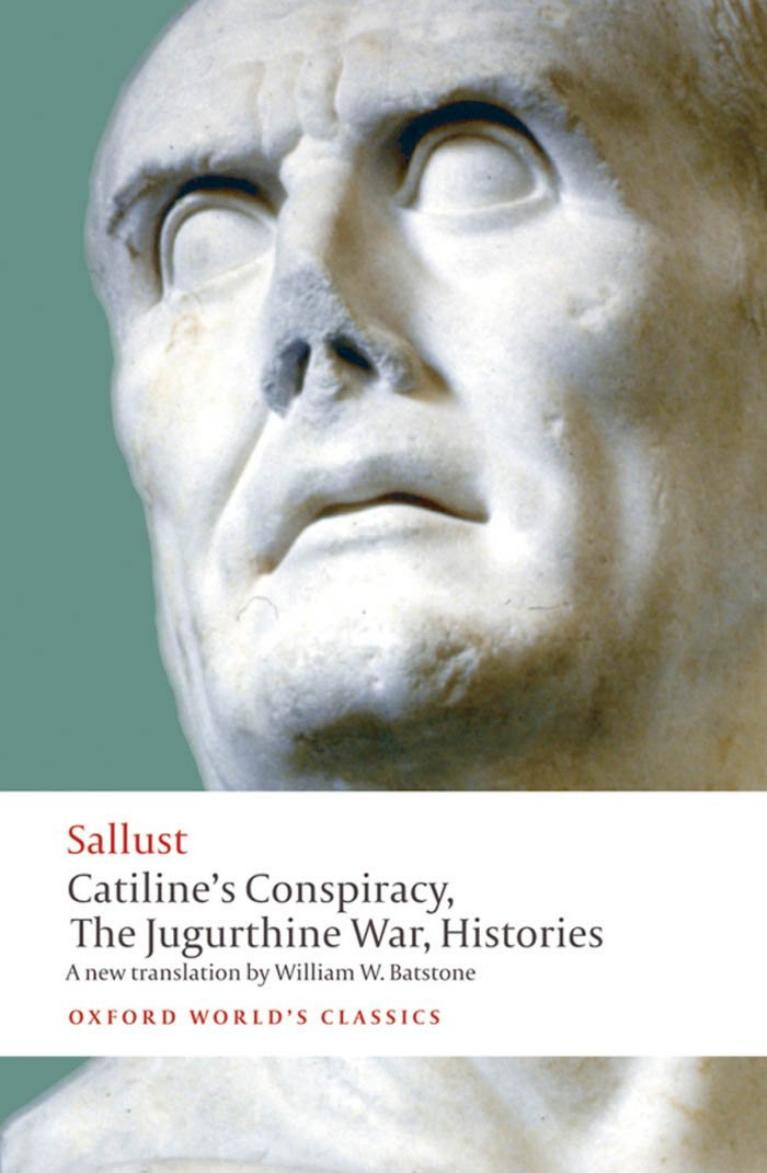Catiline's Conspiracy by Sallust

Author:Sallust [Sallust]
Language: eng
Format: epub, pdf
Tags: Oxford University Press
ISBN: 9780192823458
Published: 0101-01-01T00:00:00+00:00
HISTORIES
INTRODUCTION
Sallustâs third historiographical project deals with the period between
the Jugurthine War and Catilineâs conspiracy. Sallust does not, however, begin with Mariusâ second consulship, the event with which
The Jugurthine War ends, nor does he make it as far as Catiline. He
skips over the Social Wars, during which time Sulla grew in strength
and prestige; he passes over Sullaâs consulship and his first march
on Rome, the first time any Roman general had decided to defeat
political opposition with an army; and he overlooks both Cinnaâs
brutal return to Rome with Marius and Sullaâs return from Asia, his
dictatorship and proscriptions. In other words, he chose not to write
of Sulla and Cinna. He had already passed his verdict on Sulla in
The Jugurthine War: âBefore his victory in the civil war he was the
most fortunate of all men, but his good fortune did not exceed his
efforts. As for what he did afterwards, I do not know whether one
should feel more shame or disgust in talking of itâ ( J 95.4). And so
Sallust does not talk of it. Sulla had set aside his dictatorship in 79
and retired from public life. He died early in 78. Sallustâs Histories
begin in 78; he got as far as 67 before he died.
The Histories exist today only as fragments: four speeches (Macer,
Philippus, Cotta, and Macer), two letters (Pompey and Mithridates),
and numerous bits that come from other authors, commentators, and
grammarians, each of whom has his own reason for quoting or referring to what Sallust said. I have included the longer fragments here
and a few shorter fragments whose content and relevance to Sallustâs
thought seems clear. The sources for the shorter fragments frequently
do not tell us where the word or sentence comes from. As a result,
reference or relevance is often uncertain and the sequence of the
fragments is itself often the construct of scholars based on probabilâ
ity and guesswork. The notes occasionally refer to short fragments
(e.g. at 1.55.14) that did not themselves seem worth translating. Even
in dealing with the longer passages, we do not have the full context in
which speeches or events are set. As a result, we cannot draw any firm
conclusions about the most important aspects of the work: Sallustâs
130
Histories
understanding either of the broader political relationships between
factions or of the inner workings of particular disputes. And without
his preface we cannot relate his moral, political, and philosophical
view of this history to the trajectory of the events.
The Histories begin with the year 78, when Q. Lutatius Catulus
and M. Aemilius Lepidus entered upon the consulship. Catulus had
been a supporter of Sulla; Lepidus was both a friend of Marius and
a man who had benefited from Sullaâs brutal proscriptions. The first
major fragment is Lepidusâ speech to the Roman people, an attack on
Sulla and an appeal to the people to reclaim their freedom. Later that
year Lepidus would be sent with a consular army to Etruria to deal
with men who had been evicted from their land by Sullaâs colonists.
When Lepidus seemed to be taking their side, he was summoned
to Rome; he marched on the city instead. The Senate responded by
empowering Catulus and Pompey with their âfinal decreeâ; Sallust
records the speech of L.
Download
This site does not store any files on its server. We only index and link to content provided by other sites. Please contact the content providers to delete copyright contents if any and email us, we'll remove relevant links or contents immediately.
Phoenicians among Others: Why Migrants Mattered in the Ancient Mediterranean by Denise Demetriou(608)
american english file 1 student book 3rd edition by Unknown(608)
Verus Israel: Study of the Relations Between Christians and Jews in the Roman Empire, AD 135-425 by Marcel Simon(592)
Caesar Rules: The Emperor in the Changing Roman World (c. 50 BC â AD 565) by Olivier Hekster(580)
Basic japanese A grammar and workbook by Unknown(574)
Europe, Strategy and Armed Forces by Sven Biscop Jo Coelmont(520)
Give Me Liberty, Seventh Edition by Foner Eric & DuVal Kathleen & McGirr Lisa(497)
Banned in the U.S.A. : A Reference Guide to Book Censorship in Schools and Public Libraries by Herbert N. Foerstel(492)
The Roman World 44 BC-AD 180 by Martin Goodman(478)
Reading Colonial Japan by Mason Michele;Lee Helen;(469)
DS001-THE MAN OF BRONZE by J.R.A(462)
Introducing Christian Ethics by Samuel Wells and Ben Quash with Rebekah Eklund(456)
The Dangerous Life and Ideas of Diogenes the Cynic by Jean-Manuel Roubineau(455)
Imperial Rome AD 193 - 284 by Ando Clifford(454)
The Oxford History of World War II by Richard Overy(454)
Catiline by Henrik Ibsen--Delphi Classics (Illustrated) by Henrik Ibsen(427)
Language Hacking Mandarin by Benny Lewis & Dr. Licheng Gu(411)
Literary Mathematics by Michael Gavin;(407)
Brand by Henrik Ibsen--Delphi Classics (Illustrated) by Henrik Ibsen(390)
